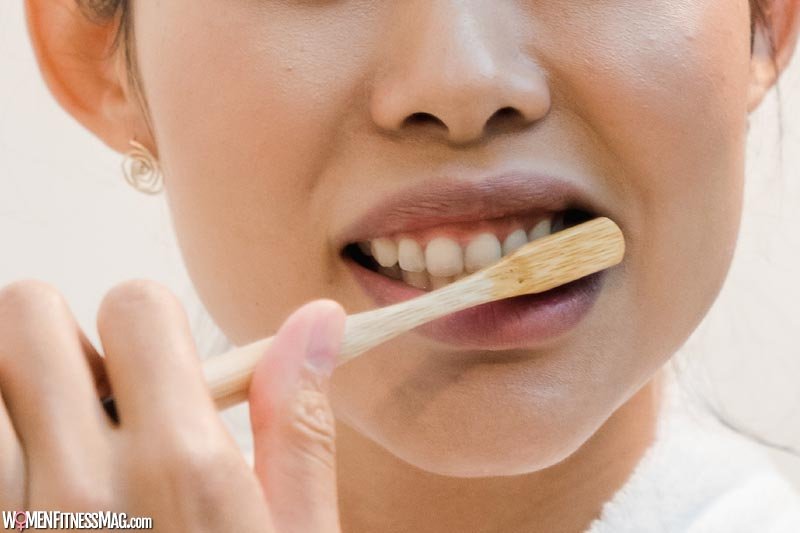How To Improve Your Oral Hygiene : Keeping a good oral hygiene routine is a fundamental part of maintaining overall health. Dental professionals, particularly here in the UK, cannot stress enough the importance of taking care of our teeth and gums. Yet, despite consistent advice, many of us still fall short in this area, often due to confusion about what exactly is required.
This article aims to clear up that confusion and guide you through an effective routine using the right oral hygiene supplies.
Understanding Oral Health
Before diving into the specifics, it’s crucial to grasp the importance of maintaining oral health. Poor oral hygiene not only leads to oral diseases like tooth decay and gum disease, but it also increases the risk of severe health conditions such as heart disease and diabetes.
The Importance of the Right Oral Hygiene Supplies
A common misconception is that any toothbrush, toothpaste, or dental floss will do the trick. However, the reality is that using the right oral hygiene supplies can make a world of difference to your dental health. Not all products are created equal, and choosing wisely is imperative.
Toothbrush
A toothbrush is the most basic of all oral hygiene supplies. It’s important to choose one with soft bristles to prevent damage to your gums and enamel. Furthermore, consider opting for a toothbrush with a small head to reach the back of your mouth easily. Dentists recommend changing your toothbrush every three to four months or sooner if the bristles are worn out.
Toothpaste
When selecting a toothpaste, look for one that contains fluoride. Fluoride is a natural mineral that helps to strengthen the tooth’s outer layer and prevent tooth decay. Remember to use only a pea-sized amount of toothpaste when brushing.
Dental Floss
Flossing is a critical part of any oral hygiene routine. Dental floss helps remove food particles and plaque from between your teeth, where the toothbrush cannot reach. Using waxed floss can make the process easier, especially for those with closely spaced teeth.
Mouthwash
While not a substitute for brushing and flossing, using mouthwash can give your oral hygiene a boost. Mouthwash can help reduce plaque, prevent gingivitis, and freshen your breath.
Regular Dental Check-ups
Even with the best at-home oral care routine, regular check-ups with a dental professional are vital. These visits can help identify potential issues early and ensure your oral hygiene routine is as effective as it should be. Be sure to ask your dentist about the best oral hygiene supplies for your unique needs.
During your visit, the dentist will thoroughly clean your teeth using specialised handpieces and instruments. This is a critical process as it removes the hard deposits (tartar) that cannot be removed by regular brushing and flossing at home.
Dietary Choices and Oral Health
We often overlook the impact of our diet on oral health. Sugary and acidic foods can lead to tooth decay and erosion, whereas a diet rich in fruits, vegetables, lean protein, and dairy products can help keep teeth and gums healthy. It’s recommended to limit the intake of sugary drinks, alcohol, and tobacco, all of which can damage your oral health. Keeping hydrated, especially with water, can also help maintain a healthy mouth as it aids in washing away food particles and keeping the mouth moist.
The Role of Technology in Oral Hygiene
The digital age has ushered in a new era of oral care. From electric toothbrushes to smart flossers, technology is changing the way we approach our oral hygiene. Electric toothbrushes, for instance, can make brushing more effective and easier, particularly for those with limited dexterity. Smart toothbrushes can even provide real-time feedback on your brushing habits, helping you improve your technique. Likewise, water flossers offer an easy and effective way to clean between your teeth and along your gum line. With technology on your side, maintaining your oral hygiene could become more efficient and engaging. However, it’s essential to consult with your dental professional about which devices may be best suited to your individual oral health needs.
Conclusion
Oral hygiene is an area where your efforts significantly pay off. Using the correct oral hygiene supplies and techniques, regular check-ups with a dental professional, and a healthy lifestyle, are the keys to maintaining good oral health.
The health of your teeth and gums impacts your overall well-being, and as a UK dental professional, I encourage you to take this aspect of your health seriously. Remember that it’s not just about maintaining a bright smile. It’s about ensuring that your oral health serves as a strong foundation for your overall health and well-being.
So the next time you think about skipping the brush before bed or neglecting the floss, think about the wider implications. Choose your oral hygiene supplies wisely, listen to the advice of dental professionals, and keep up with your regular dental visits. Remember, it’s better to spend a little time each day on prevention than a lot of time (and potentially discomfort) in the dentist’s chair.
Related Videos about How To Improve Your Oral Hygiene :
How To Improve Your Oral Hygiene
10 ways to keep your teeth healthy, long-term effects of poor oral hygiene, 5 ways to take care of your teeth, 6 ways to take care of your teeth, oral health care, oral hygiene pdf, oral hygiene steps, definition of oral hygiene according to who,




